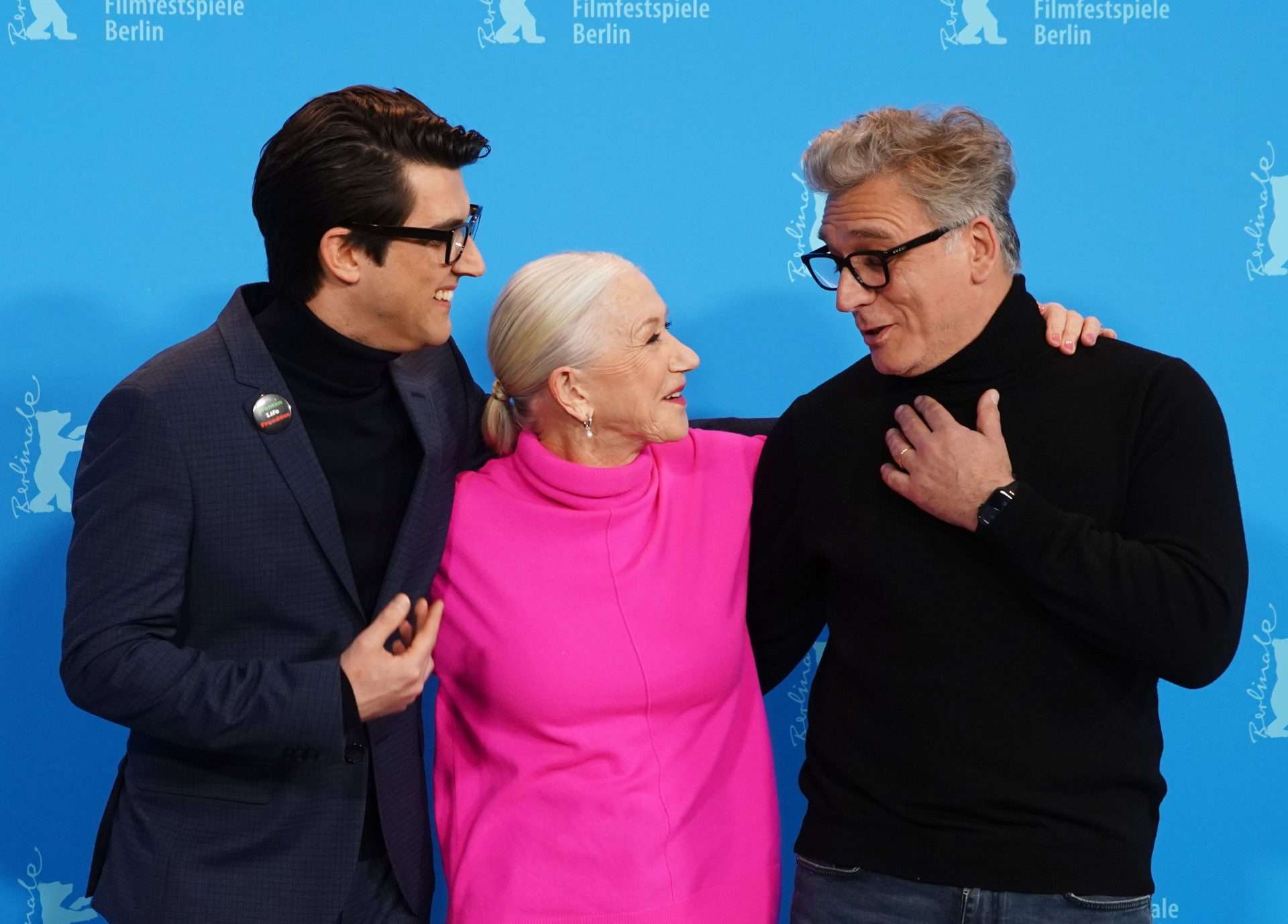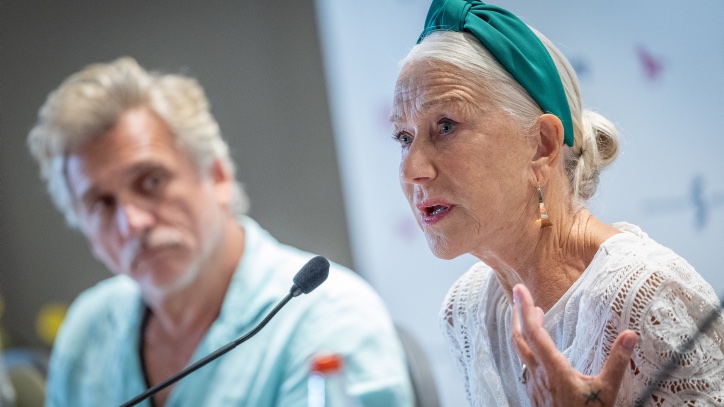The latest film biography about Israel’s former Prime Minister Golda Meir was released in Israel at just the right time. Not only because this year was the 50th anniversary of the Yom Kippur War, but also because the people of Israel today need urgently to be awakened. No war in Israel’s history has traumatized the nation as much as the 20-day conflict in October 1973. In the first days of the war, it looked as if the young state would not survive the surprise attack by Egypt and Syria. On the Jewish Day of Atonement, Yom Kippur, both armies attacked simultaneously in Sinai and the Golan Heights. The sirens wailed across the country and people couldn’t believe their ears. I highly recommend Golda because on the one hand it is a historical documentary and on the other hand it is a warning for a divided people. Golda Meir once said: “Peace will only come when the Arabs love their children more than they hate us.”

Golda Meir, played by acclaimed British actress Helen Mirren, made the right decisions in fateful moments. The film’s Israeli director Guy Nattiv repaired the image of the then-head of government in his film. Basically, in this telling, Israel’s only ever female leader did nothing wrong. Those at fault for the catastrophic start to the war were Israel’s intelligence services, both Military Intelligence (Aman) and the Mossad, which failed to wiretap the Egyptians at the crucial moment. Golda took full responsibility for both, although she was not personally responsible for them and was ultimately acquitted by the Agranat Commission.
If such an existential war had broken out in our day, it would either reunite the people of Israel despite all the internal turmoil, or it would bring Israel to an end. By the time the firing stopped, the Yom Kippur War had cost Israel 2,656 dead and 7,251 wounded soldiers. 294 prisoners of war were captured by the enemy. And all this in a country with a population of just 3.3 million at the time. Almost 0.1 percent of the Israeli population died in this war.

The feature film is based on historical information and once again refers to the nervous breakdown of the one-eyed general and Defense Minister Moshe Dayan. When Golda sent him north by helicopter in the first three days to inform her of the situation of the Israeli troops, he returned shaken. He wanted to resign from his position as defense minister. At that moment, Dayan believed that Israel was coming to an end. He muttered “Armageddon” and “ordered the nuclear reactor in Dimona to make the necessary preparations.” The 75-year-old, chain-smoking Golda said “no” and demanded that he “pull himself together.” She needed his face on camera to calm the crowd. Dayan was Israel’s heroic commander in the Six-Day War of 1967 and the people trusted him. Even in the euphoria of his glorious successes, Dayan first downplayed the threat from Cairo and Damascus and then did almost everything wrong that could be done wrong in this emergency situation. The real man on the military staff was a woman, Golda. “In order to be successful as a woman, the woman has to do the job much better than the men,” noted Golda.
The film not only restores the image of Israel’s Iron Lady, but also the image of the IDF Chief of Staff at the time, David “Dado” Elazar. He was accused after the war of being trapped in the concept (like everyone around him) that the Arab states would never again attack Israel after the disgrace of the Six-Day War, and if they did, then “we would break their bones.” In the film, Dado quietly made it clear that she would decide on a counter-strategy on her own, since from her point of view Dayan was no longer capable of it. For them it was clear: “If the Arabs lay down their weapons, then there will be no more wars. But if Israel lays down its arms, then the State of Israel will no longer exist.”
At the same time, the film also shows Golda’s negotiations with the America’s Jewish Secretary of State Henry Kissinger. Only after the Americans supplied Israel with weapons and new fighter jets (Phantom) did the war take a dramatic turn. Through a counteroffensive, the Israeli army managed to encircle parts of the Egyptian army in Sinai. On October 25, 1973, the war ended with a ceasefire. But Golda insisted a ceasefire would only be possible if Egyptian President Anwar Sadat officially recognized the State of Israel and its government and stopped referring to it as the “Zionist regime.”
Golda ends with historical footage of the peace treaty between Israel and Egypt, which Menachem Begin signed at Camp David in 1979. Golda Meir, who died of cancer in 1978, did not live to see this moment, but she was the first to meet Sadat behind the scenes and, a year before her death, greeted the Egyptian leader in the Knesset in Jerusalem. The two are said to have gotten along very well. It was Golda who paved the way for peace with Egypt through military victory in the Yom Kippur War. “It is true that we have been victorious in all wars, but we have paid a price for it. We don’t want any more victories,” emphasized Golda.
Golda is more than a film. In a way it is vindication for an Israeli leader who was forced to resign from office (in 1974) under great public pressure. Maybe Israel needs a woman at the top again, because men very often can’t get past their egos. For years, in conversations with my wife and friends, I have been arguing that Israel urgently needs a female prime minister again. Why not? Until then, run to the cinemas and check out Golda.

Golda Meir. Photo: SA’AR YA’ACOV/GPO
Golda Meir was born on May 3, 1898 in Kiev, Russian Empire, now Ukraine, and died on December 8, 1978 in Jerusalem. She was an Israeli politician from the left-wing socialist Mapai Party and was Israel’s Foreign Minister from 1956 to 1965 and Prime Minister from March 1969 to June 1974. She experienced pogroms against Jews during her childhood in Kiev. She told Kissinger this in her apartment in Tel Aviv as he hurriedly flew to Israel to organize a ceasefire with Cairo. Her father fled to the United States when she was five years old, and three years later he brought his family to Milwaukee, Wisconsin.













